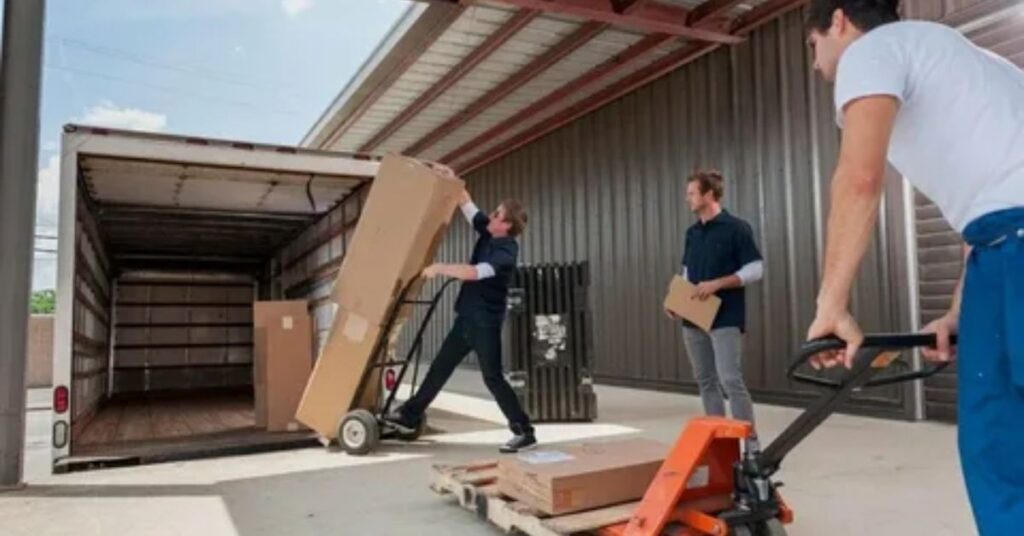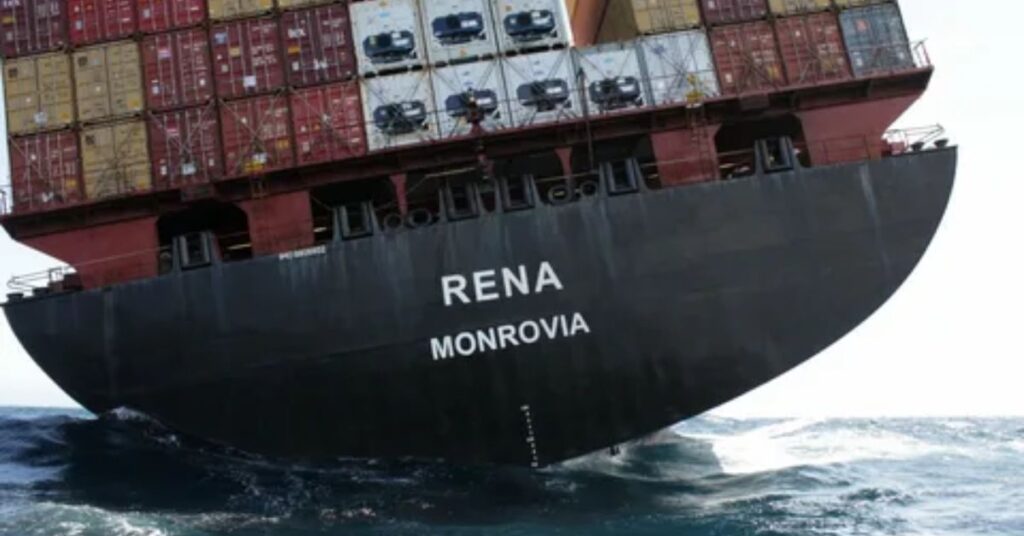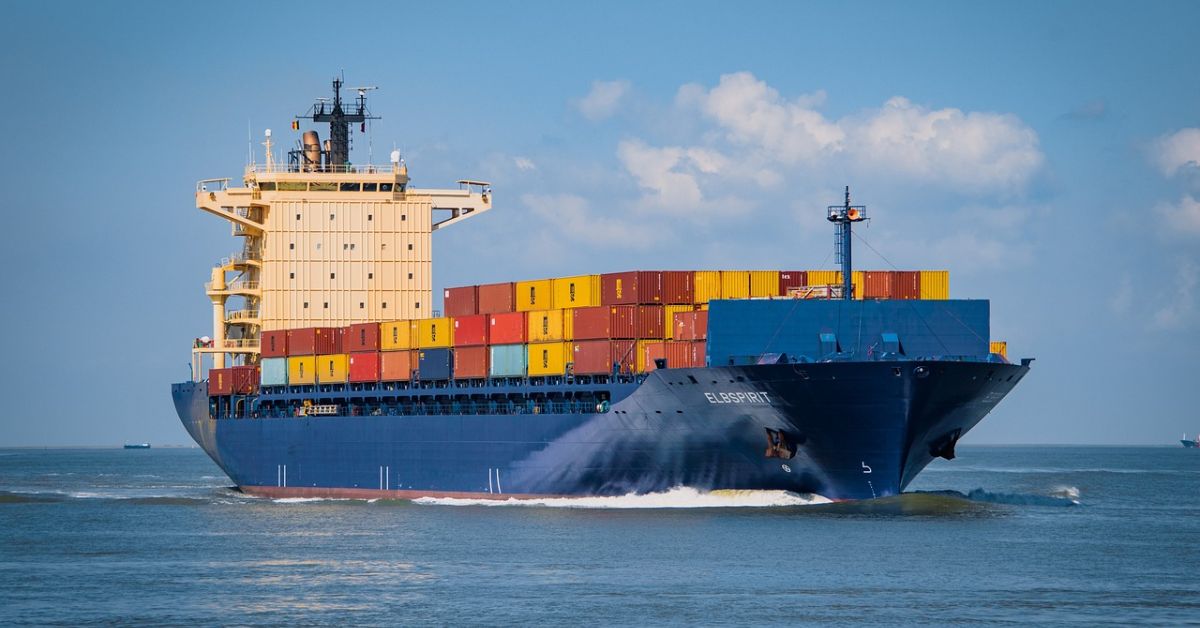Picture this: You’re cruising down the highway, your prized possessions safely tucked away in the trunk. But have you ever wondered about the intricate dance of logistics that unfolds when transporting goods on a grander scale? Enter Rena Monrovia, a visionary in the world of automotive transportation.
Monrovia’s journey began with a simple observation: the inefficiencies plaguing the car transport industry. With a keen eye for detail and an innovative spirit, she set out to revolutionize how vehicles and goods are moved across vast distances. Her approach combines cutting-edge technology with time-honored logistics principles, creating a seamless network that spans continents.
But Rena’s impact extends far beyond the realm of trucks and trailers. Her methods have rippled through the entire supply chain, influencing everything from manufacturing schedules to retail strategies. As we delve into Monrovia’s story, we’ll uncover how one woman’s vision is reshaping the very fabric of global commerce, one vehicle at a time.
The State of Monrovia’s Roads
Monrovia’s rods are a mixed bag. Some of the main streets are paved and in good condition, especially in the city center. But many roads are unpaved or full of potholes.
During the rainy season, from May to October, roads can become muddy and difficult to navigate. Drivers must be prepared for sudden changes in road conditions and plan their routes carefully.
Common Vehicles for Transportation
In Monrovia, you’ll see a variety of vehicles used for transport. Old pickup trucks and vans are popular for moving goods. Many of these vehicles are second-hand imports from Europe or Asia.
Motorbikes with attached carts, known as “Keke,” are also common for smaller loads. These nimble vehicles can navigate narrow streets and heavy traffic more easily than larger trucks.
Loading and Securing Cargo

Proper loading is crucial when transporting goods in Monrovia. Items must be balanced and secured to prevent shifting during the journey. Ropes, straps, and tarps are essential tools for this.
Overloading is a common issue as drivers try to maximize each trip. This can be dangerous and may lead to accidents or vehicle damage. It’s important to know your vehicle’s weight limits.
Read also this blog: MyOLSD: Revolutionizing Educational Management for Modern Learning
Navigating Traffic in Monrovia
Traffic in Monrovia can be chaotic, especially during rush hours. Drivers must be alert and ready to react quickly. Patience is key, as congestion can lead to long delays.
Traffic rules are often loosely followed. Drivers should be prepared for unexpected moves from other vehicles. Defensive driving skills are essential for staying safe on Monrovia’s busy streets.
Dealing with Police Checkpoints
Police checkpoints are common in Monrovia. Officers may stop vehicles to check documents or inspect cargo. It’s important to have all necessary papers, including a driver’s license and vehicle registration, readily available.
Some checkpoints may involve unofficial fees or bribes. This is a sensitive issue, and drivers must navigate these situations carefully. Staying polite and respectful is usually the best approach.
Fuel and Vehicle Maintenance
Fuel stations are available throughout Monrovia, but quality can vary. It’s wise to stick to reputable stations to avoid contaminated fuel. Prices can fluctuate, so it’s good to keep an eye on current rates.
Vehicle maintenance is crucial due to rough road conditions. Regular oil changes, tire checks, and brake inspections are essential. Many small workshops in Monrovia offer repairs, but finding skilled mechanics can be challenging.
Market Deliveries and Pick-ups

Monrovia’s markets are bustling hubs of activity. Transporting goods to and from these markets requires careful planning. Early morning or late evening deliveries can help avoid the busiest times.
Parking near markets can be difficult. Some drivers hire helpers to watch their vehicles and assist with loading or unloading. Building good relationships with market vendors can make the process smoother.
Rainy Season Challenges
The rainy season brings extra challenges for transport in Monrovia. Roads can become flooded or washed out. Drivers must be prepared for sudden storms and carry equipment like tow ropes.
Visibility can be poor during heavy rain. Good windshield wipers and functioning lights are crucial. Some drivers avoid transporting sensitive goods during the heaviest rains to prevent water damage.
Read also this: Unlocking Data Potential with SSIS 816
Security Concerns for Drivers
While Monrovia is generally safe, drivers transporting valuable goods must be cautious. Theft can occur, especially at night. Many drivers travel in groups or hire security for high-value loads.
It’s important to be aware of your surroundings and trust your instincts. Avoid stopping in isolated areas, and park in well-lit, populated places when possible. Building a network of trusted contacts can help.
Communication on the Road
Mobile phones are widely used in Monrovia for communication during transport. Drivers often call ahead to confirm delivery details or report delays. Having a reliable phone and keeping it charged is important.
Some companies use simple tracking systems to monitor their vehicles. However, internet connectivity can be inconsistent. Many drivers rely on regular check-ins by phone to update their location and status.
Dealing with Breakdowns
Vehicle breakdowns are not uncommon in Monrovia due to road conditions and the age of many vehicles. Carrying basic tools and spare parts is wise. Many drivers know basic repair skills.
If a breakdown occurs, safety is the priority. Moving the vehicle off the road if possible and using warning triangles is important. Local mechanics can often be called for roadside assistance.
Cross-City vs. Local Transport
Transporting goods across Monrovia can take longer than expected due to traffic and road conditions. It’s important to allow extra time for journeys, especially when crossing the city during busy hours.
Local transport within neighborhoods can be quicker but may involve navigating narrow, unpaved streets. Smaller vehicles, or even handcarts, are sometimes used for these short-distance deliveries in congested areas.
Environmental Concerns
Many vehicles in Monrovia are old and produce high emissions. This contributes to air pollution, especially in busy areas. Some organizations are working to introduce cleaner vehicles, but progress is slow.
Proper disposal of vehicle fluids and parts is a challenge. Informal recycling and repair shops sometimes lead to environmental issues. There’s growing awareness of these problems, but solutions are still developing.
The Role of Motorbikes
Motorbikes play a big role in Monrovia’s transport scene. They’re used for small deliveries and as taxis. Many car drivers must be extra cautious around these nimble but vulnerable vehicles.
The popularity of motorbikes has led to concerns about safety and regulation. Some areas have restrictions on motorbike use. Balancing their usefulness with safety concerns is an ongoing challenge for the city.
Planning Routes and Timing
Careful route planning is essential for efficient transport in Monrovia. Drivers often share information about road conditions and traffic. Knowing alternative routes can save time during unexpected delays.
Timing is crucial, especially for perishable goods. Early morning or late-night transport can help avoid the worst traffic. However, security concerns must be balanced with the desire for quicker journeys.
Loading and Unloading Zones
Designated loading zones are limited in Monrovia. Many businesses use the street in front of their premises. This can cause traffic issues. Drivers often need to be creative and patient when finding space.
Some areas have informal systems for managing loading and unloading. Building good relationships with local businesses and other drivers can help in negotiating space and avoiding conflicts.
The Impact of Holidays and Events
Major holidays and events can significantly affect transport in Monrovia. Roads may be closed or extra-crowded. It’s important to be aware of the local calendar and plan accordingly.
Some drivers avoid working during big events, while others see opportunities in increased demand. Flexibility and good information are key to navigating these special circumstances.
The Future of Transport in Monrovia

Monrovia’s transport system is slowly evolving. There are plans for road improvements and better traffic management. However, change is gradual, and drivers must adapt to current conditions.
New technologies, like ride-sharing apps, are starting to appear. These may change how some goods are transported. Drivers and businesses are watching these developments with interest, wondering how they’ll shape the future.
The Importance of Local Knowledge
Successful transport in Monrovia often relies on local knowledge. Experienced drivers know the best routes and times for different areas. This information is usually shared informally among drivers.
Newcomers to the transport scene may struggle at first. Building relationships with other drivers and learning the unwritten rules of the road are crucial. Local knowledge can save time and avoid potential problems.
The Role of Informal Transport Networks
Informal networks play a big role in Monrovia’s transport system. Many drivers belong to loose associations or groups. These networks help share information and provide support.
These informal networks can also help with finding work. Drivers often pass on job opportunities or recommend each other for transport contracts. Building a good reputation within these networks is valuable.
Dealing with Seasonal Goods
Monrovia’s transport needs change with the seasons. During harvest times, there’s a high demand for transporting agricultural goods. Drivers may need to adapt their vehicles for different types of produce.
The holiday season also brings changes. There’s often increased demand for transporting gifts and celebration supplies. Drivers who can anticipate and prepare for these seasonal shifts may find more opportunities.
The Challenge of Perishable Goods
Transporting perishable goods in Monrovia presents unique challenges. The hot climate and lack of refrigerated transport make timing crucial. Drivers often start very early in the morning for fresh produce.
Some drivers have found creative solutions, like using ice or insulated containers. Building direct relationships with buyers can help ensure quick delivery. Knowledge of the best routes and timing is especially important for perishables.
Night-time Transport
Night-time transport in Monrovia has its own set of challenges and opportunities. Some drivers prefer working at night to avoid daytime traffic. However, security concerns are higher after dark.
Proper lighting on vehicles is crucial for night driving. Some drivers travel in convoys for added security. Night transport often requires extra planning and precautions but can be more efficient for certain goods.
The Impact of Urban Development
Monrovia is constantly changing, with new construction and road projects affecting transport routes. Drivers must stay informed about these changes. Sometimes, familiar shortcuts may become unavailable due to construction.
Urban development also creates new opportunities. New businesses and residential areas mean new transport needs. Adaptable drivers who can serve these emerging markets may find success.
Cross-Border Transport
While this article focuses on transport within Monrovia, some drivers also handle cross-border trips. This involves additional challenges, like customs procedures and longer journeys. Knowledge of international regulations is important.
Cross-border transport can be more profitable but also riskier. Drivers involved in this work often need additional permits and insurance. Building relationships with customs officials and border agents can be helpful.
The Role of Technology
While not as advanced as in some cities, technology is starting to impact transport in Monrovia. Some companies use basic GPS tracking for their vehicles. Mobile apps for coordinating deliveries are slowly being adopted.
However, tech adoption faces challenges like inconsistent internet and power supply. Many drivers still rely on traditional methods and personal networks. The balance between new technology and established practices is still evolving.
Women in Transport
The transport sector in Monrovia is traditionally male-dominated, but this is slowly changing. More women are entering the field as drivers and coordinators. They often face unique challenges and, sometimes, discrimination.
Some organizations are working to support women in transport. They offer training and networking opportunities. The increasing presence of women is gradually changing the dynamics of the industry.
Transporting Construction Materials
With ongoing development in Monrovia, transporting construction materials is a significant part of the transport scene. This involves heavy loads like cement, steel, and timber. Specialized vehicles or modifications are often needed.
Drivers in this sector need to be aware of weight limits on roads and bridges. Loading and unloading these materials can be physically demanding and sometimes dangerous. Safety precautions are especially important in this area.
The Informal Economy and Transport
Much of Monrovia’s economy operates informally, and this affects transport. Many transactions are cash-based and undocumented. Drivers often need to navigate between the formal and informal sectors.
This informality can provide flexibility but also challenges. It can be difficult to secure loans or insurance without formal records. Some drivers are working towards formalizing their operations for long-term stability.
Fuel Efficiency and Cost Management
With fluctuating fuel prices, managing costs is a constant challenge for drivers in Monrovia. Some focus on improving their vehicles’ fuel efficiency through regular maintenance. Others carefully plan routes to minimize fuel use.
Balancing the cost of fuel with transport fees is an ongoing calculation. Some drivers form buying groups to purchase fuel in bulk at better rates. Managing these costs effectively can make the difference between profit and loss.
FAQ’s
What types of vehicles does Rena Monrovia transport?
Rena Monrovia transports a wide range of vehicles, including sedans, SUVs, trucks, motorcycles, RVs, and specialty vehicles. They offer customized transport solutions to meet the specific needs of each vehicle type.
How does Rena Monrovia ensure the safety of my vehicle during transport?
Rena Monrovia uses advanced equipment and trained professionals to secure your vehicle during transit. They follow strict safety protocols and monitor weather conditions to adjust routes as needed, ensuring your vehicle arrives safely and on time.
What is the process for booking a car transport service with Rena Monrovia?
To book a car transport service, you need to request a quote from Rena Monrovia. After receiving a quote, you can schedule a convenient pick-up and delivery time. Before pick-up, you should prepare your vehicle by removing personal items and ensuring it’s in good condition.
Are there any hidden fees or additional costs with Rena Monrovia’s services?
No, Rena Monrovia provides transparent pricing with no hidden fees. The quote you receive includes all costs associated with the transport, ensuring you know exactly what you’re paying for upfront.
Does Rena Monrovia offer insurance coverage for vehicle transport?
Yes, Rena Monrovia offers insurance coverage for vehicles during transport. This coverage provides added protection and peace of mind, ensuring any damages during transit are covered. They also provide tracking options to keep you informed about your vehicle’s status.
Conclusion
As we reflect on Rena Monrovia’s contributions to the automotive transport industry, it’s clear that her innovative approaches have transformed more than just logistics. Her vision has streamlined processes, reduced costs, and minimized environmental impact, setting new standards for efficiency and sustainability in the sector.
Looking ahead, Monrovia’s influence continues to grow. Her methods are being adopted across various industries, proving that when it comes to transportation, thinking outside the box—or, in this case, the car—can lead to revolutionary change. As global commerce evolves, Rena Monrovia’s legacy serves as a reminder that even the most established systems can be improved with ingenuity and determination.

BagisPack.com: Your ultimate travel companion. Explore expert travel tips, packing guides, and destination insights. Empowering adventurers with essential advice for seamless journeys around the globe.








